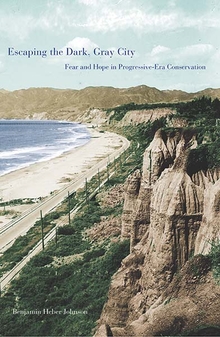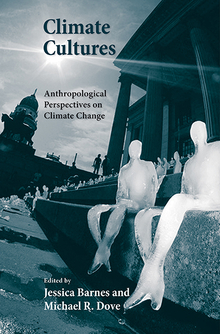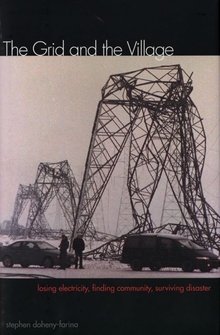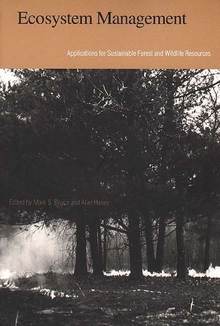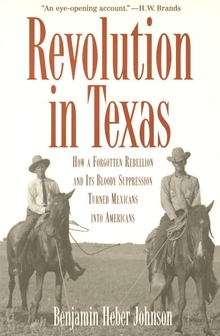Escaping the Dark, Gray City
WARNING
You are viewing an older version of the Yalebooks website. Please visit out new website with more updated information and a better user experience: https://www.yalebooks.com
Fear and Hope in Progressive-Era Conservation
Benjamin Heber Johnson
A compelling and long-overdue exploration of the Progressive-era conservation movement, and its lasting effects on American culture, politics, and contemporary environmentalism
The turn of the twentieth century caught America at a crossroads, shaking the dust from a bygone era and hurtling toward the promises of modernity. Factories, railroads, banks, and oil fields—all reshaped the American landscape and people.
In the gulf between growing wealth and the ills of an urbanizing nation, the spirit of Progressivism emerged. Promising a return to democracy and a check on concentrated wealth, Progressives confronted this changing relationship to the environment—not only in the countryside but also in dense industrial cities and leafy suburbs.
Drawing on extensive work in urban history and Progressive politics, Benjamin Heber Johnson weaves together environmental history, material culture, and politics to reveal the successes and failures of the conservation movement and its lasting legacy. By following the efforts of a broad range of people and groups—women’s clubs, labor advocates, architects, and politicians—Johnson shows how conservation embodied the ideals of Progressivism, ultimately becoming one of its most important legacies.
The turn of the twentieth century caught America at a crossroads, shaking the dust from a bygone era and hurtling toward the promises of modernity. Factories, railroads, banks, and oil fields—all reshaped the American landscape and people.
In the gulf between growing wealth and the ills of an urbanizing nation, the spirit of Progressivism emerged. Promising a return to democracy and a check on concentrated wealth, Progressives confronted this changing relationship to the environment—not only in the countryside but also in dense industrial cities and leafy suburbs.
Drawing on extensive work in urban history and Progressive politics, Benjamin Heber Johnson weaves together environmental history, material culture, and politics to reveal the successes and failures of the conservation movement and its lasting legacy. By following the efforts of a broad range of people and groups—women’s clubs, labor advocates, architects, and politicians—Johnson shows how conservation embodied the ideals of Progressivism, ultimately becoming one of its most important legacies.
Benjamin Heber Johnson is associate professor in the history department at Loyola University, Chicago, and author of Revolution in Texas and Bordertown.
“This work is a timely and important intervention in the debate which will reinvigorate scholarship on both conservation and Progressivism and show the relevance of both to today’s world.”—Ian Tyrrell, author of Crisis of the Wasteful Nation: Empire and Conservation in Theodore Roosevelt’s America
“Lucid, thought-provoking, and impassioned, Ben Johnson’s Escaping the Dark, Gray City is the single best overview of conservation in more than a generation.”—Karl Jacoby, Columbia University
“All historians of the United States, and especially those concerned with the Progressive Era, will profit from this excellent, well-written, and timely book.”—Journal of American History
Awarded honorable mention for the 2016-17 SHGAPE Presidents' Book Prize
ISBN: 9780300115505
Publication Date: April 4, 2017
Publication Date: April 4, 2017
320 pages, 6 1/8 x 9 1/4
20 b/w illus.
20 b/w illus.

